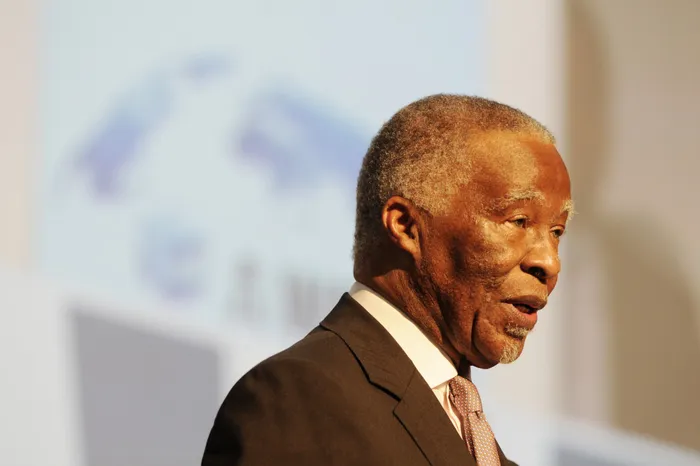Cape Town Conversation: Mbeki calls for concrete results on global order

FORMER president Thabo Mbeki was among high-level speakers at this year’s Cape Town Conversation.
Image: Armand Hough / Independent Newspapers
FORMER president Thabo Mbeki has called on delegates at this year’s Cape Town Conversation to move beyond high-level debate and return next year with concrete, actionable outcomes.
“When people talk about data, what do they mean? Many spoke eloquently and in an educated manner here, but I did not understand what it was. What are data centres even?” Mbeki said in his closing remarks at the event, held at the Westin in Cape Town.
“When we meet next year, we are going to keep this same topic of shaping a just global order until we can come out with actionable outcomes.”
Mbeki added that the handing over of the G20’s leadership to the US made it even more important for the forum to continue returning to the theme.
The event this week was attended by eminent scholars, researchers, practitioners and policymakers gathered to assess the value and impact of G20 deliverables on Africa and the broader global South.
The 2025 Cape Town Conversation, co-hosted by the India-based Observer Research Foundation (ORF) and the Thabo Mbeki Foundation (TMF), ran under the theme “Renew and Rebuild: Shaping a Just Global Order.”
It featured high-level speakers including Mbeki, former National Assembly Speaker Thoko Didiza, India’s former minister of Commerce, Industry and Textiles Anand Sharma and the UN’s Resident Coordinator Nelson Muffuh, among others.
Over three days, participants examined challenges facing multilateralism, which they argued continues to influence and shape global order.
Discussions also explored how countries attempt to stabilise financial, social and political systems through cooperation, competition and compromise. Much of the debate centred on the power of the global North in setting international “rules of the game” on trade, energy and the digital economy.
Sunaina Kumar, Director and Senior Fellow at ORF, outlined several key insights that emerged from the gathering. She noted that countries of the Global South still struggle to engage meaningfully with the global North in co-creating a fairer international system.
“Unfair trade practices, financial exclusion, geopolitical turbulence, an emasculated United Nations system, the primacy of national security interests and the impact of a new techno-feudalism persist, despite grand declarations by the G20, the EU or the AU,” said Kumar.
She added that members of the Global South are increasingly willing to interrogate the strengths and weaknesses of their chosen vehicles for global engagement.
The expanded BRICS grouping came under scrutiny, as did the potential of smaller, complementary coalitions or plurilateralism to advance shared interests. While participants recognised the promise of these Southern institutions, questions remain about their ability to shape global norms in practice.
Several optimistic themes also surfaced, particularly around the Global South’s untapped potential.
Delegates highlighted examples from India and Africa of sustainable livelihood models that support both communities and ecosystems, opportunities to strengthen regional energy integration and reduce reliance on external actors, the importance of aligning development finance institutions with clean-energy priorities, the need to reclaim the maritime domain for development and innovation and lastly the opportunity to harness the region’s demographic dividend.
Mbeki wrapped up the event by also linking this year’s Cape Town Conversation theme to the global Sustainable Development Goals (SDGs).
“Current reports on SDG targets say that only 35% are on track or making moderate progress. When we speak about shaping a just global order, it might simply require us to follow up on these SDGs. The elements of that just global order will be the achievement of the SDG goals,” he said.
CAPE TIMES